
The Wellington Hospital Knee Unit

Providing exceptional care for our patients in the UK’s only dedicated knee unit
Call
0207 483 5148
Platinum Medical Centre
15 – 17 Lodge Road
NW8 7JA
Payment options available: This facility offers treatments at a fixed price
About The Wellington Knee Unit
For almost 30 years The Wellington Hospital Knee Unit, has been a centre of excellence exclusively dedicated to treating knee problems – everything from congenital problems in children to ligament and cartilage tears and strains from sports injuries and full knee replacements for patients suffering from arthritis.
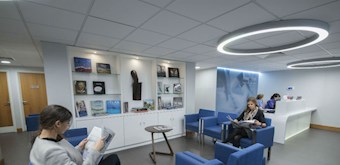

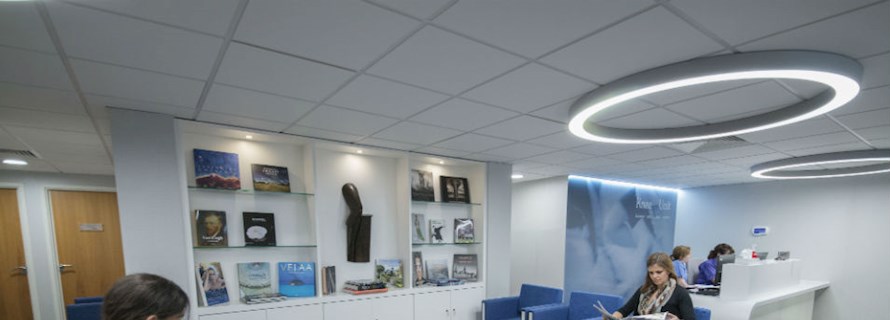
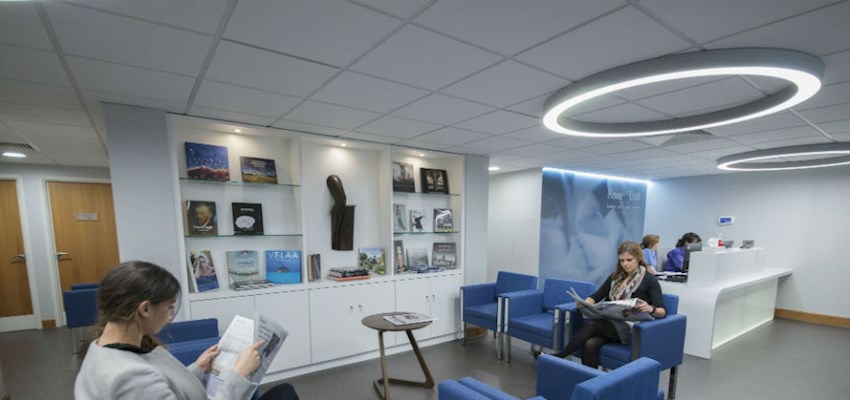
What knee conditions do we treat?
This list of conditions provides some guidance to the common conditions we offer treatment for at The Wellington Knee Unit. We are an experienced orthopaedic team who can provide investigations and diagnosis of a wide range of knee problems. Every member of our team of consultants is a leading expert in their own field of surgery, offering the latest treatments and innovative techniques.
-
Meniscal injury - repair, regeneration and cruciate ligament injuries
-
Multi-ligament injuries
-
Kneecap (patellofemoral) instability
-
Cartilage injuries - repair and regeneration
-
Knee joint arthritis
-
Partial and total knee replacement
-
Revision knee replacement
-
Realignment (osteotomy) of the knee for joint preservation
Meet our expert team of knee consultants
Between all our surgeons, they have performed thousands of knee operations and have a pool of specialised knowledge and experience to draw on. However complicated and painful your knee problem is, we have the expertise here to help correct it and get your joint working normally, restoring mobility and relieving your pain.
Same day knee appointments
Our dedicated team is experienced in providing a seamless journey from consultation and testing, through to diagnosis and bespoke treatment. We provide maximum flexibility and accessibility, same-day appointments are available at four of our London diagnostic centres:
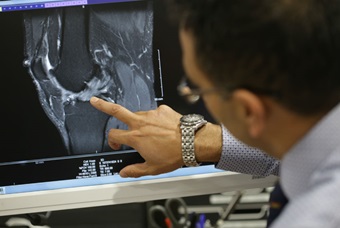
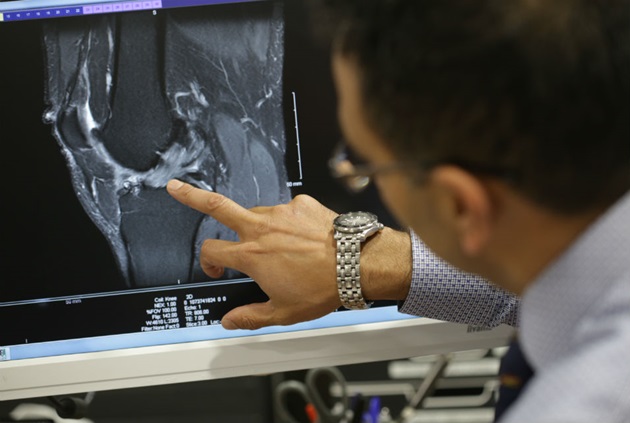
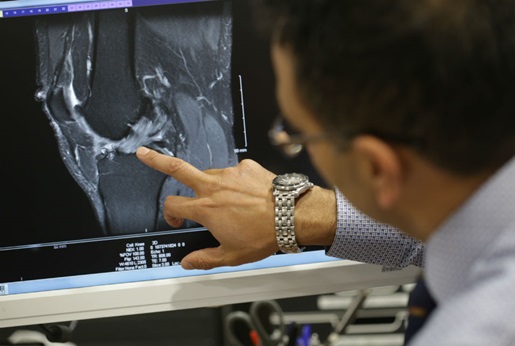
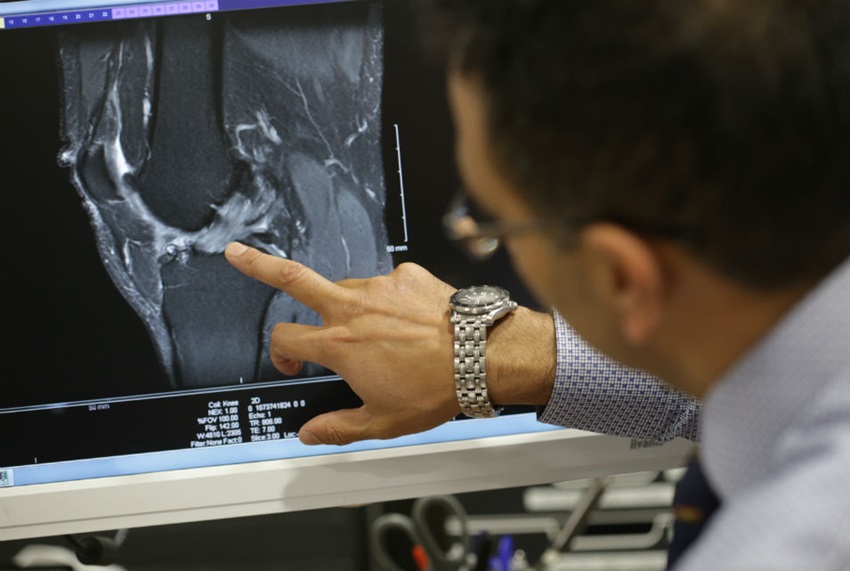
We treat patients of all ages, from high-performance athletes, to weekend warriors and patients debilitated by arthritis.
Mr Chinmay Gupte, Consultant Orthopaedic Surgeon
Specialist knee diagnostics
We offer a complete range of diagnostic imaging services conveniently located across London. We understand that busy professionals have demanding schedules, which is why we are able to provide appointments at a place and a time to suit patients, without the stress of multiple consultations, and long waiting times.
All of our centres include state-of-the-art knee imaging equipment:
This provides speed and accuracy of diagnosis for all patients. Any investigations are carried out on-site on the same day, and reported that same day too.
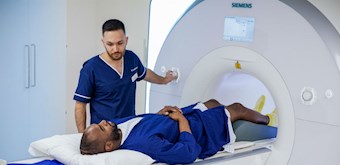

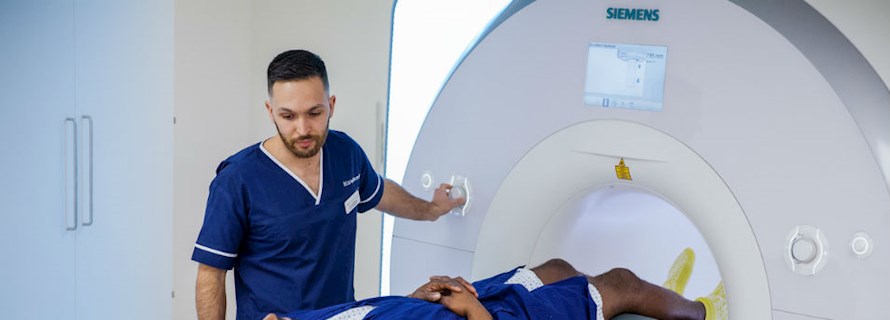
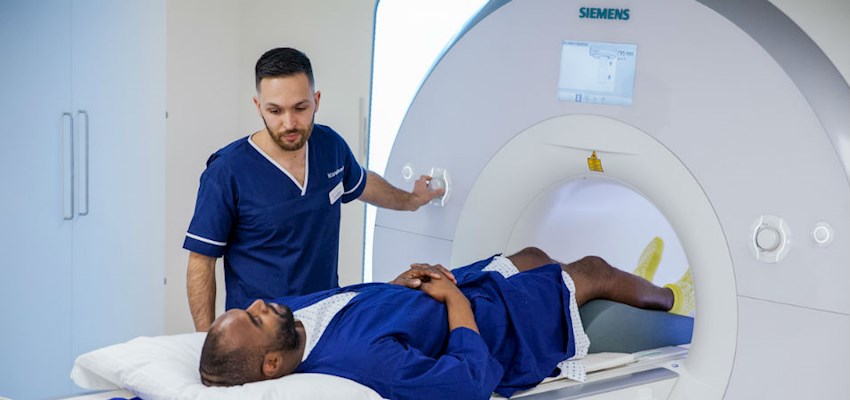
View all knee treatments and services
-
Anterior cruciate ligament injury
Need to know
The anterior cruciate ligament (ACL) is a band of strong band of cord like tissue that runs across and inside your knee to keep it stable. Tearing the ACL can happen during every day activity but is also a common sports injury, which may happen during an awkward landing, impact or sudden change of direction...
-
Knee pain
Need to know
If you have pain, discomfort, swelling or restricted movement in your knee, it can affect every aspect of your day-to-day life. These problems may result from an injury or wear and tear that gets worse over time. Our knee specialists are here to help diagnose a wide range of injuries and conditions,...
-
Knee sprain
Need to know
If you have pain, swelling or tenderness around or inside your knee, you may have a knee sprain. Sprains can happen if you've damaged or injured the muscles or one of the four ligaments that support the knee. Ligament sprains are graded (from one to three), depending on how bad your injury is. Common...
-
Cartilage injury
Need to know
Cartilage is the resilient, flexible tissue covering the internal surfaces of our joint, found throughout our bodies. It acts as a cushion and allowing bones to slide over one another. It can become damaged as a result of sudden injury or gradual wear and tear. Minor injuries may get better on their...
-
Meniscal injury
Need to know
A meniscus tear is a common sports injury, and can affect people of all ages. The menisci (plural of meniscus) are c-shaped structures which protect each knee. In younger people, they are tough and rubbery but can tear when twisted with force. In older people, the menisci become less elastic and can...
-
Patella instability
Need to know
The patella is a very important part of your knee joint forming part of the extensor mechanism. This is the chain of structures at the front of your leg that provide the ability for the knee to straighten. Patellar instability refers to a knee cap that moves out of position.
-
Patellofemoral pain syndrome
Need to know
Patellofemoral pain syndrome is a term used to describe pain at the front of your knee and around the kneecap (patella). The pain and stiffness can make it difficult to perform everyday activities such as using stairs, kneeling and squatting.
-
Ligament injuries
Need to know
Ligaments are tough, flexible tissues which connect one bone to another bone and hold them in place. When too much force is applied to a ligament, it can become injured or torn. This makes the joint unstable.
-
Microfracture surgery
Need to know
Surface cartilage covers the ends of the bones that form your joints. Smooth, healthy cartilage allows the bones to glide across each other smoothly and painlessly as you move. If you have significant damage to an isolated patch of the surface cartilage in your knee, your consultant might recommend microfracture...
-
Arthroscopic meniscectomy
Need to know
Damage to the cushioning cartilage within the knee (meniscus) can happen at any age. A meniscectomy is a key hole procedure to remove the damaged part of this cartilage. This procedure aims to reduce pain and swelling in the knee and improve function.
-
Chondroplasty
Need to know
An chondroplasty smooths over loose, roughened surface cartilage covering your bone. It is normally an option for mild cartilage wear and is done as arthroscopic (keyhole) surgery, and is best placed for mechanical symptoms such as clicking and catching.
-
Knee arthroscopy
Need to know
If you’re experiencing ongoing pain in your knee, arthroscopy is a simple, straightforward procedure that allows your consultant to see inside your knee joint using a small surgical camera (arthroscope) that transmits images to a high-definition monitor. It’s used to diagnose a range of joint...
-
Knee re-alignment surgery
Need to know
A high tibial osteotomy, or HTO, is a surgical procedure where the patient’s tibia (shinbone) is cut and reshaped to alleviate pressure within the knee joint.
-
Knee replacement surgery
Need to know
The most common cause of knee joint pain in the older age group is arthritis, which can be brought on by wear and tear (osteoarthritis), inflammatory disease (rheumatoid arthritis) or injury (post-traumatic arthritis). A total or partial knee replacement involves replacing the damaged joint surfaces...
-
Kneecap joint replacement surgery
Need to know
The most common cause of knee joint pain is arthritis, which can be brought on by age (osteoarthritis), inflammatory disease (rheumatoid arthritis) or injury (post-traumatic arthritis). A replacement involves replacing the damaged kneecap with a joint-shaped implant.
-
Partial knee replacement
Need to know
Unicompartmental, or partial, knee replacement surgery is a procedure to treat advanced osteoarthritis affecting just one compartment of the knee joint. As partial knee replacement involves a smaller incision, it's a preferred alternative to total knee replacement, causing less damage to the bones and...
-
Revision anterior cruciate ligament reconstruction
Need to know
You might need to undergo revision ligament reconstruction in your knee because your initial ACL reconstruction procedure has failed. The failure of the procedure can be for a number of reasons including: infection incorrect positioning or movement of the graft at the time of the first...
-
Fracture
Need to know
A fracture (or broken bone) refers to a loss in the continuity of a bone. They are normally caused by a high-force impact, stress (over a period of time) or as a result of another bone-weakening condition, such as osteogenesis imperfecta, osteoporosis or bone cancer. If you've suffered a bone fracture,...
-
Joint inflammation caused by sport injury
Need to know
Many sports put sustained pressure on joints, leading to overuse injuries and pain. Sometimes injuries in sport lead to traumatic damage to joints, causing joint swelling and synovitis.
-
Muscle strains and sprains
Need to know
Muscle strains and sprains can be a common consequence of playing sport or over exertion during activities. These may occur from physical contact or not warming your muscles up properly before playing. You will likely experience pain, swelling and tightness in the pain area. Your consultant can help...
-
Osteoarthritis
Need to know
Over the years, wear and tear affects cartilage in the joints, causing pain, weakness and stiffness. This is known as osteoarthritis (OA). It can affect any joint but is most common in the knees, hip, and spine. It is a degenerative condition and often starts in people over 50-years-old but can affect...
-
Osteoporosis
Need to know
Osteoporosis is a condition that weakens bones, making them fragile and more likely to break. The condition develops slowly, as people lose bone mass after the age of 35. Post-menopausal women are particularly susceptible. The most common injuries in people with osteoporosis are wrist and hip...
-
PRP injections
Need to know
Stem cells and platelets are naturally occurring substances found in blood, and they can be injected into the body to help promote the recovery of injured muscles, tendons, joints and ligaments. They are referred to as platelet rich plasma (PRP) injections. The substances are injected into injured tissue...
-
Autologous cartilage-cell implantation
Need to know
Autologous cartilage-cell implantation provides pain relief and delays the need for partial or total knee replacement surgery. The aim of the implantation is to allow you to return to your old lifestyle; regaining mobility, returning to work and even playing sports again. It forms part of a clinical...
Mako® robotic-arm assisted surgery
The Mako includes fewer complications, less pain and faster recovery times, restoring confidence in your mobility and helping you to return to your active lifestyle sooner. The lifespan of your implant should also be increased as more accurately positioned implants last longer.
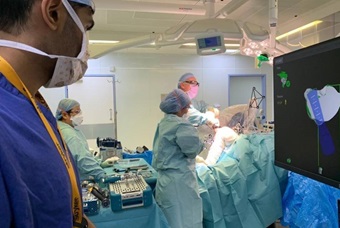
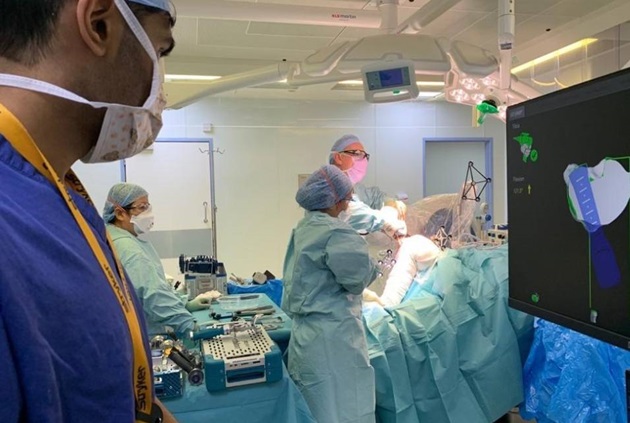
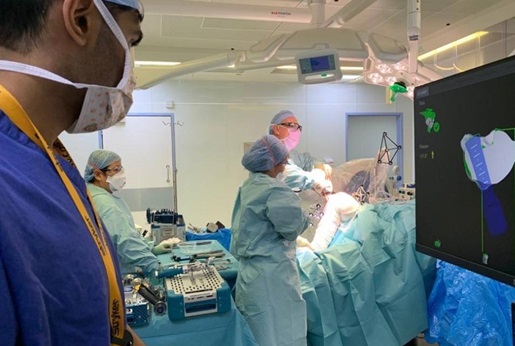
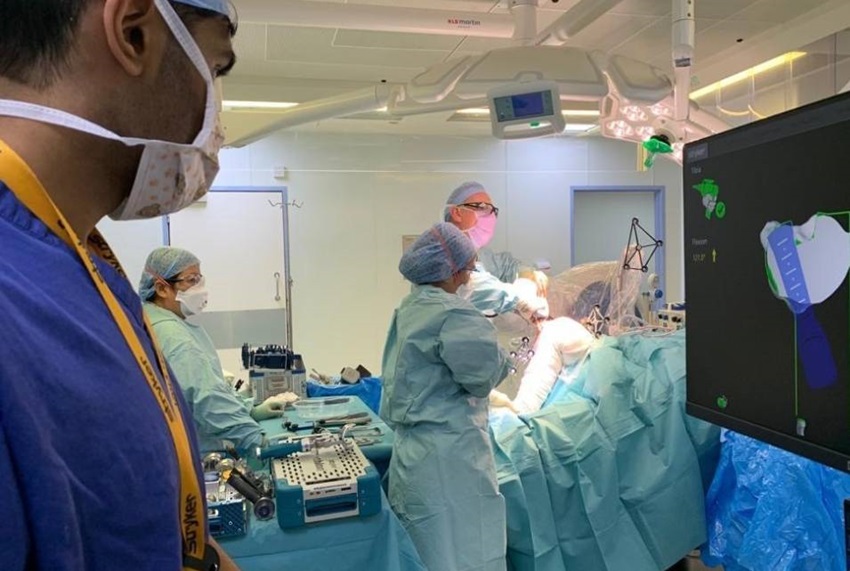
During your consultation
In your consultation we will assess and evaluate your condition and send you for diagnostic investigation in our on-site diagnostic and imaging centre, and only if necessary recommend you for surgery.
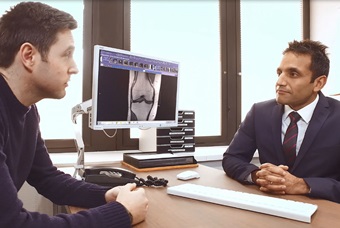
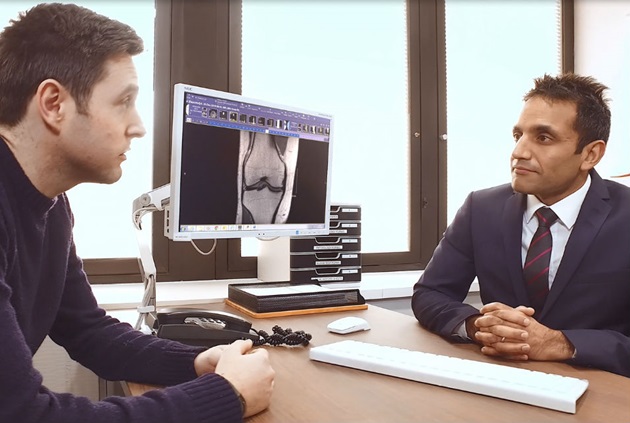
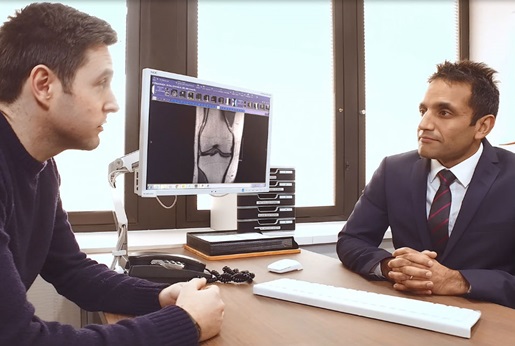
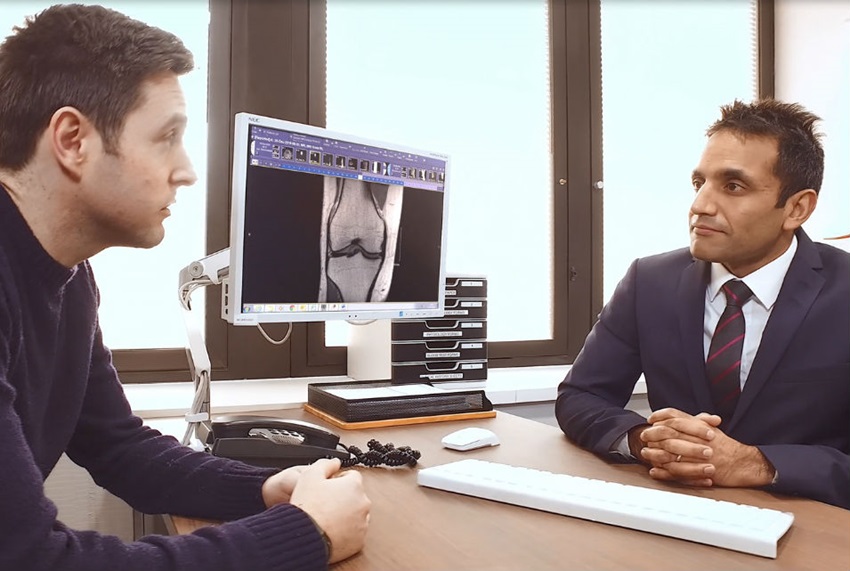
A truly multidisciplinary team
Each member of our team of surgeons practice in London’s teaching hospitals and are recognised internationally. Importantly, they are also supported by leading musculoskeletal radiologists and sports medicine specialists, as well as highly experienced senior radiographers, physiotherapists and specialist nurses.
Our highly experienced orthopaedic nurses work closely with our consultants to ensure each patient receives personalised care and support. Our in-house specialist physiotherapist team offer a complete service and develop a tailored therapy programme for patients having day surgery or for those requiring a longer length of stay in hospital.
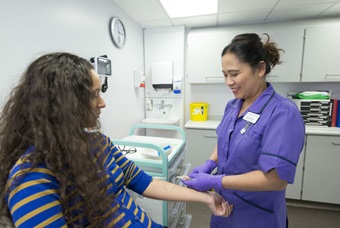
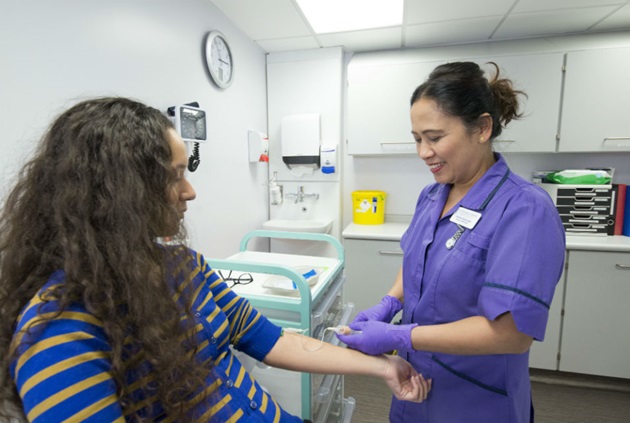
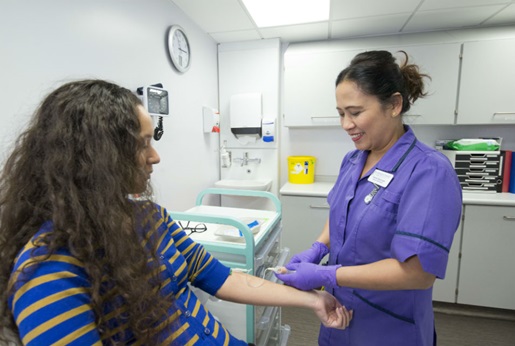
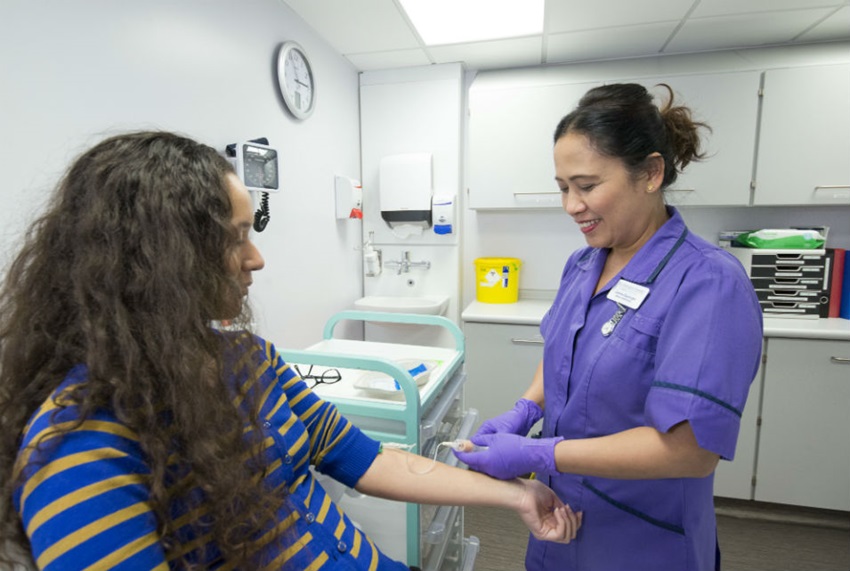
We are using the latest diagnostic and surgical devices including minimal invasive surgery and bespoke implants. This enables us to reduce the length of time you are out of action.
Mr Sam Oussedik, Consultant Orthopaedic Surgeon
Follow-up care made easy
Conditioning, strengthening and preventative exercises form a core part of our treatment plans. Patients can choose who to manage their rehab and where – whether it’s with a sports specialist, or a physio closer to home.
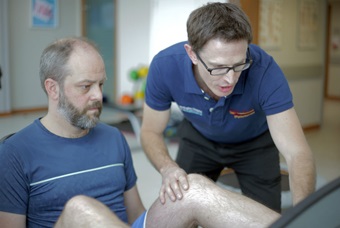
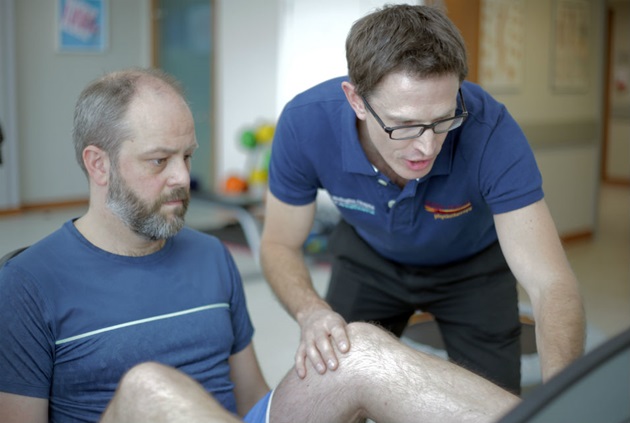
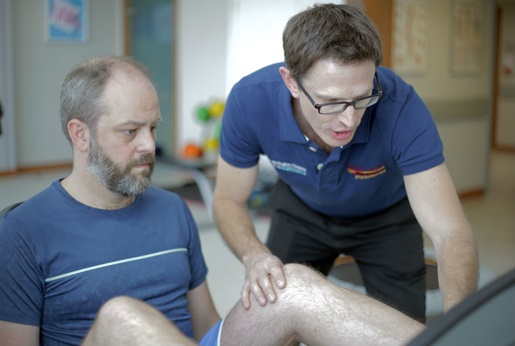
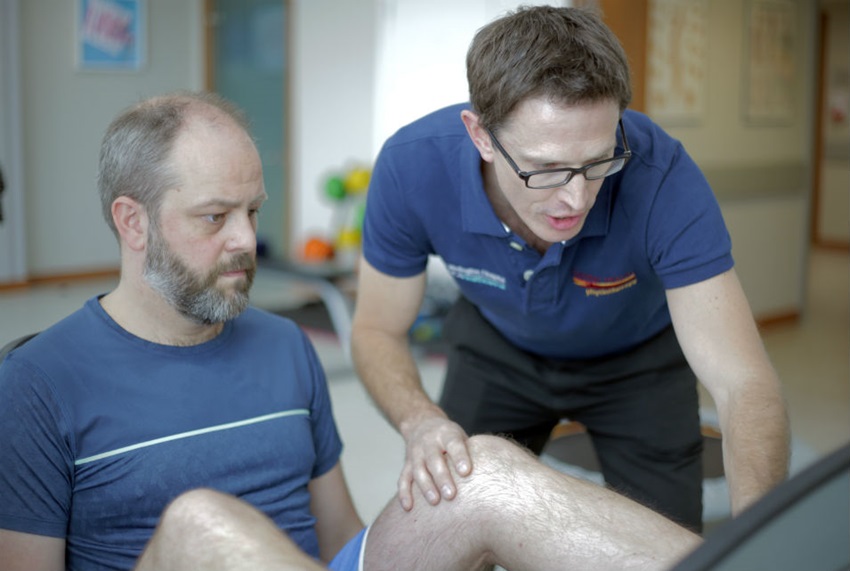
My Recovery app
We offer a specialist App for our patients to track their recovery and performance, helping them manage their journey to recovery much faster.
The ‘My Recovery’ app is unique for knee patients and allows you to collect and record your own data.
Our aim is to digitally empower our patients.
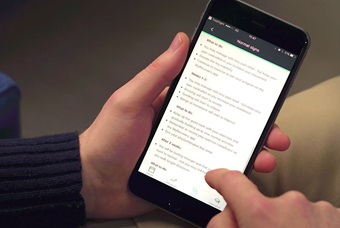
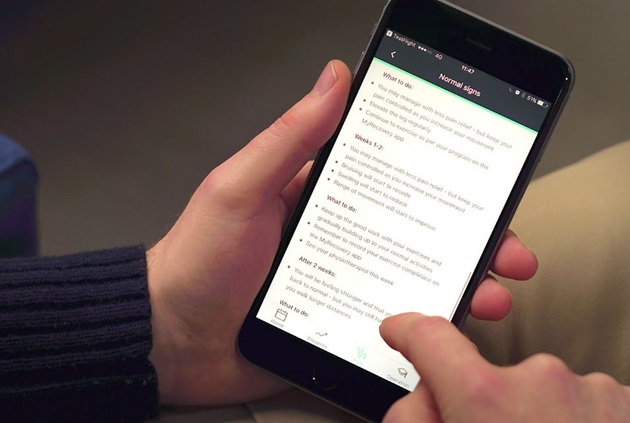
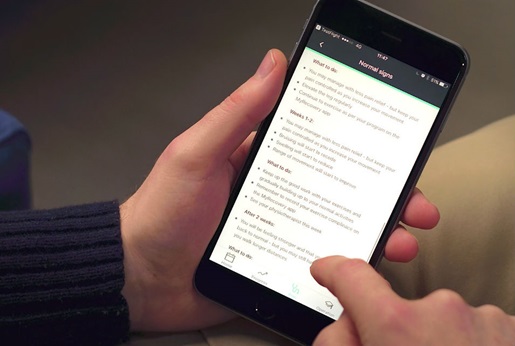
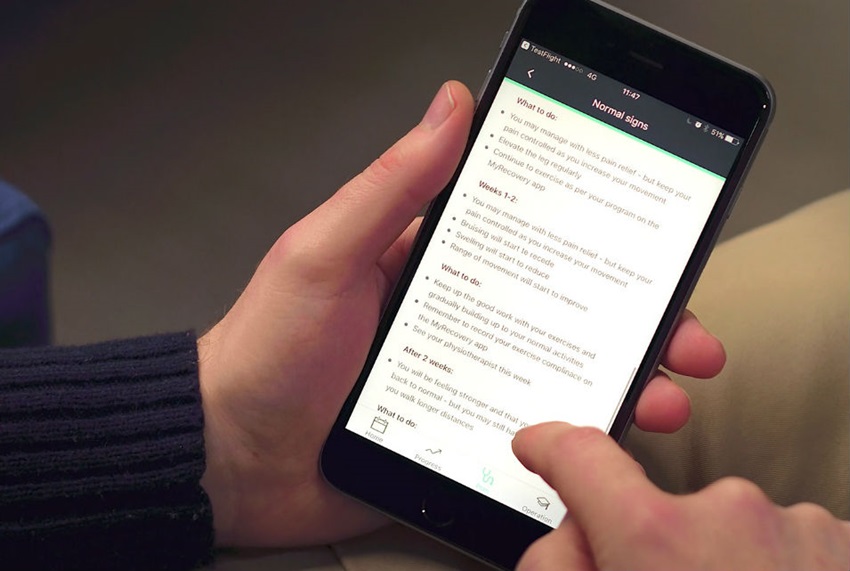
With you every step of the way
Our Knee Unit is based at The Wellington Hospital, which means our patients benefit from the hospital’s exceptional in-patient care and specialist facilities including complex surgical capabilities, acute admissions unit, orthopaedic gym and the largest private intensive care unit in the UK.
I’ve always been extremely active and I love a challenge, but through injuries I’ve suffered over the years I’ve learned that you can’t take your body for granted. Knee problems in particular can be extremely immobilising but I am lucky to have received fantastic treatment for my ligament injury from Mr Gupte and the team
Jodie Kidd, Model, sports personality and former patient at the Knee Unit
Our location
Platinum Medical Centre
15 – 17 Lodge Road
NW8 7JA
Making a Referral
We accept referrals from GPs, consultants and physiotherapists, but patients can also self-refer.
Fast and flexible appointments can be arranged directly with the unit’s dedicated booking team.
Same-day appointments are always available.
Opening hours: Monday - Friday, 9am - 5pm
Tel:
0207 483 5148















